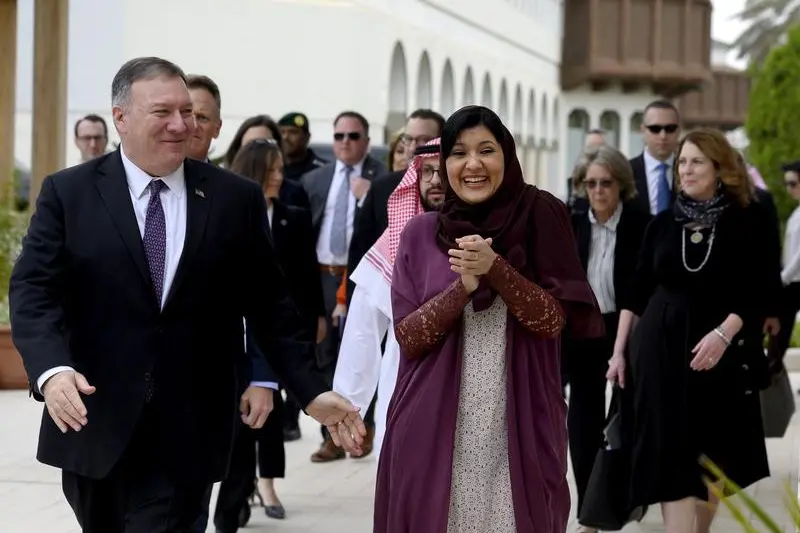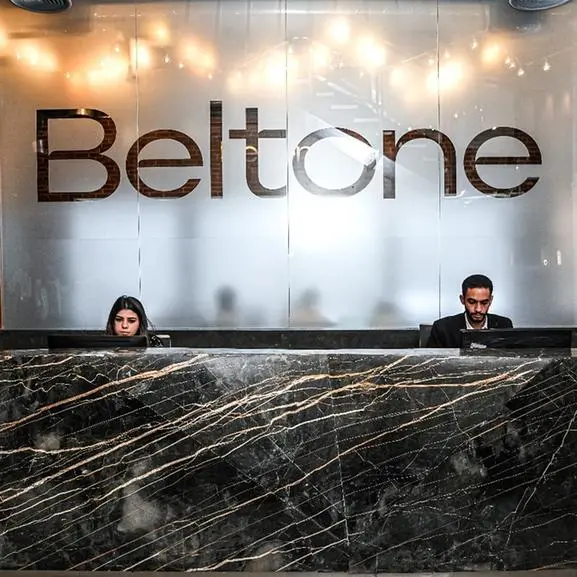PHOTO
The US is steadfast in its commitment to women’s full and free participation in the economy, which is why last year President Trump launched the Women’s Global Development and Prosperity Initiative (W-GDP). On Friday, the US launched a global Call to Action on women’s economic empowerment.
The US and Saudi Arabia are strategic partners on a range of priority issues critical to both our success. As Secretary of State Mike Pompeo said at the US-Saudi Strategic Dialogue this month, Saudi Arabia has been a stabilizing force throughout the region by transforming its economy and empowering women through its Vision 2030 goals, facilitating negotiations that would bring an end to the Yemeni conflict, and coordinating a global response to the COVID-19 pandemic during its leadership of the G20.
I am pleased that Saudi Arabia has joined us again to support this shared priority by becoming one of the Core Group of UN member states. These states are working together to develop and implement national strategies to facilitate women’s full and free participation in the economy. By joining the Core Group and the Call to Action, Saudi Arabia builds on the momentum of its successful reforms in recent years and the efforts under its G20 presidency. Women’s empowerment is a key element of Vision 2030, helping to unlock Saudi Arabia's vast human capital and paving the way for additional social and economic advances.
Under Saudi Arabia’s leadership, the W20 issued its communique last week urging G20 leaders to “pave the way for an equitable economic recovery where women, as equal partners and key economic actors, are part of the solution.” Women build resilience in economies. Women are essential to global economic recovery and must claim their rightful seat at the table for decision-making in both public and private sector spheres, in policy making and implementation.
Women around the world are serving on the frontlines of the COVID-19 pandemic as scientists, and health workers, and in other essential services. They are our everyday heroes whose dedication and courage inspires us all. As the world begins to recover, the US believes more than ever that women must have equal access to opportunities in order to rebuild our global economy.
Women’s participation in the economy is also inextricably linked to the UN’s foundational goals to support security and stability, help secure the fundamental rights of more than half our human family, and spur social and economic development.
The Call to Action member states commit to develop national implementation plans that advance legal, regulatory, and policy reforms in key areas of law to empower women’s full and free participation in the economy, including women’s ability to build credit, own and manage property, travel freely, and work in the same jobs and sectors as men. In a landmark report released this year, the White House Council of Economic Advisors found that if countries addressed these areas alone it could add as much as $7.7 trillion to annual global GDP.
The US supports private sector-led growth, entrepreneurship, and legal reforms that expand women’s economic opportunities, and we look forward to working with our W-GDP partners to unleash women’s untapped potential and improve and create new opportunities for women to participate fully in the economy — at home and around the world.
- John P. Abizaid is the US Ambassador to Saudi Arabia
Copyright: Arab News © 2020 All rights reserved. Provided by SyndiGate Media Inc. (Syndigate.info).





















